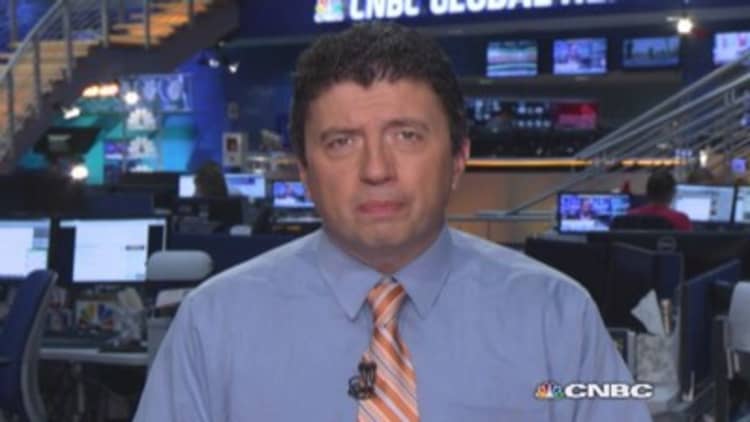
Pimco and its parent firm Allianz moved to stem concern over Bill Gross' surprise exit Friday, assuring investors that the relationship remains solid and they expect client loss to be minimal.
Officials from the two firms Monday looked to downplay the loss of Gross, who founded the firm 43 years ago.
Pimco CEO Doug Hodge emphasized that the differences between the two sides were tied to management and media strategy and not to investing. The firm had acknowledged Friday that "fundamental differences" led to the breakup.
"Those differences did not pertain to clients' portfolio investment strategy," Hodge said in a conference call. "Those (nonstrategy issues) were the ones that were broadly at issue with Bill, and, as a result, his decision to resign."
Read MoreGartman: 'Bond market is bigger' than Bill Gross
The biggest issue at Pimco from a strategy standpoint has been a mass exodus of client money over the past 15 months or so, particularly from the firm's flagship Total Return Fund, which has lost more than $40 billion in all. The $221 billion fund remains the largest bond fund in the world and is still the core of the firm's $1.97 trillion in assets under management.
Allianz shares were lower in Monday trading, though the Pimco Total Return exchange-traded fund rose modestly. Gross' new firm, Janus Capital, saw its shares surge nearly 40 percent after the Friday announcement, but they fell more than 5 percent in early Monday trading.
Estimates have put the potential additional fund loss solely related to Gross leaving at more than $200 billion over the next two years, and Pimco officials did not dispute that there would be more withdrawals.
Read MoreJack Bogle: Bill Gross career move is Pimco's loss
However, they said they were prepared to handle the fallout and had $350 billion of cash on hand to handle redemptions.
"Our liquidity position is very solid, and, as you can imagine, we're closely monitoring the flows. We're closely monitoring all our funds," Hodge said. "We do this as routine."
Hodge acknowledged Gross' importance to the firm but said it had plenty of other talent to carry out its investment goals.
"Bill was our CIO and, of course, had a large presence," he said. "But the reason people choose us and the reason people will ultimately stay with us is our investment performance—our process and our performance."

